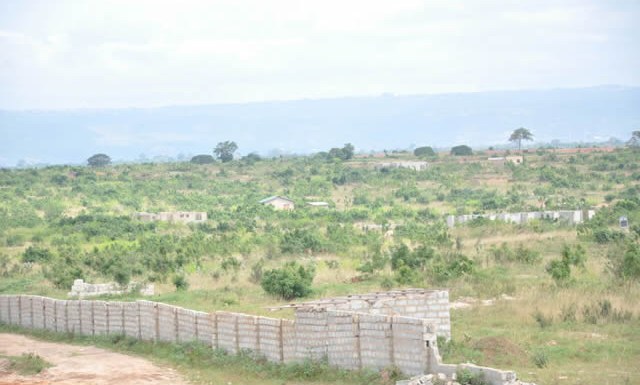Ghana is expected to realise the full benefits of its land reforms agenda in the next 20 years from the start of its implementation.
This is the projection made by the Senior Lecturer at the University of Ghana School of Law, Kwame Gyan.
Speaking to Newsfile host, Samson Lardy Anyenini Saturday, he said Ghana's land reforms which began in 2003, are long term initiatives whose benefits will take time to manifest.
"The World Bank put in a lot of money to help Ghana fix the land administration system. But land reforms are long term national objectives. If you want to reap the dividends of a proper land reform agenda, you should be looking towards not less than two decades before you can really feel that something has changed on the ground. You are not looking at anything below 15 years," he said.
Mr Gyan made these comments on the hills of the passage of the new Land Act 2020 (Act 1036).
This Act is to help streamline the land administration system by introducing a clear, coherent, and consistent policies and laws supported by appropriate institutional structures.
Prior to the enactment of the new law, Ghana in 2014 commenced the implementation of its Land Administration Reforms.
The objective was to undertake land policy and institutional reforms and key land administration pilots for laying the foundation for a sustainable decentralised land administration system that is fair, efficient, cost effective and ensures land tenure security.
The Senior Lecturer said that the reforms have made it possible for the development of institutional framework to harmonise land policies and to restructure public land administration agencies into a One-stop-shop, the Lands Commission, for efficient delivery of services.
"Out of the reforms, we got a new legal regime for the lands sector. So in 2008, a new legislation, the Lands Commission Act was passed and assented to by the President. What the Lands Commission Act did was to bring together the previously separate and disparate institutions that managed lands."
"In the past, we had the Lands Commission, Land Registry, Land Valuation Board, Office of the Administration of Stool lands, the Deeds Registry, Survey Department and Lands Title Registry. All these agencies had their own legal setups, their own leaderships and records. With Act 76, 2008, these agencies were brought together with the Administrator of Stool Lands and the Department of Town and Country Planning," Mr Gyan explained.
Although the land sector is sudden with several litigations, direct confrontations resulting in maiming and deaths, the Land Administration expert believes Ghana has made considerable progress in land service delivery and it will require more patience and the active participation of all stakeholders to succeed in streamlining the land management system.
Latest Stories
-
Ghana and Seychelles strengthen bilateral ties with focus on key sectors
15 mins -
National Elections Security Taskforce meets political party heads ahead of December elections
18 mins -
Samsung’s AI-powered innovations honored by Consumer Technology Association
38 mins -
Fugitive Zambian MP arrested in Zimbabwe – minister
56 mins -
Town council in Canada at standstill over refusal to take King’s oath
1 hour -
Trump picks Pam Bondi as attorney general after Matt Gaetz withdraws
1 hour -
Providing quality seeds to farmers is first step towards achieving food security in Ghana
1 hour -
Thousands of PayPal customers report brief outage
2 hours -
Gary Gensler to leave role as SEC chairman
2 hours -
Contraceptive pills recalled in South Africa after mix-up
2 hours -
Patient sues Algerian author over claims he used her in novel
2 hours -
Kenya’s president cancels major deals with Adani Group
2 hours -
COP29: Africa urged to invest in youth to lead fight against climate change
3 hours -
How Kenya’s evangelical president has fallen out with churches
3 hours -
‘Restoring forests or ravaging Ghana’s green heritage?’ – Coalition questions Akufo-Addo’s COP 29 claims
3 hours

